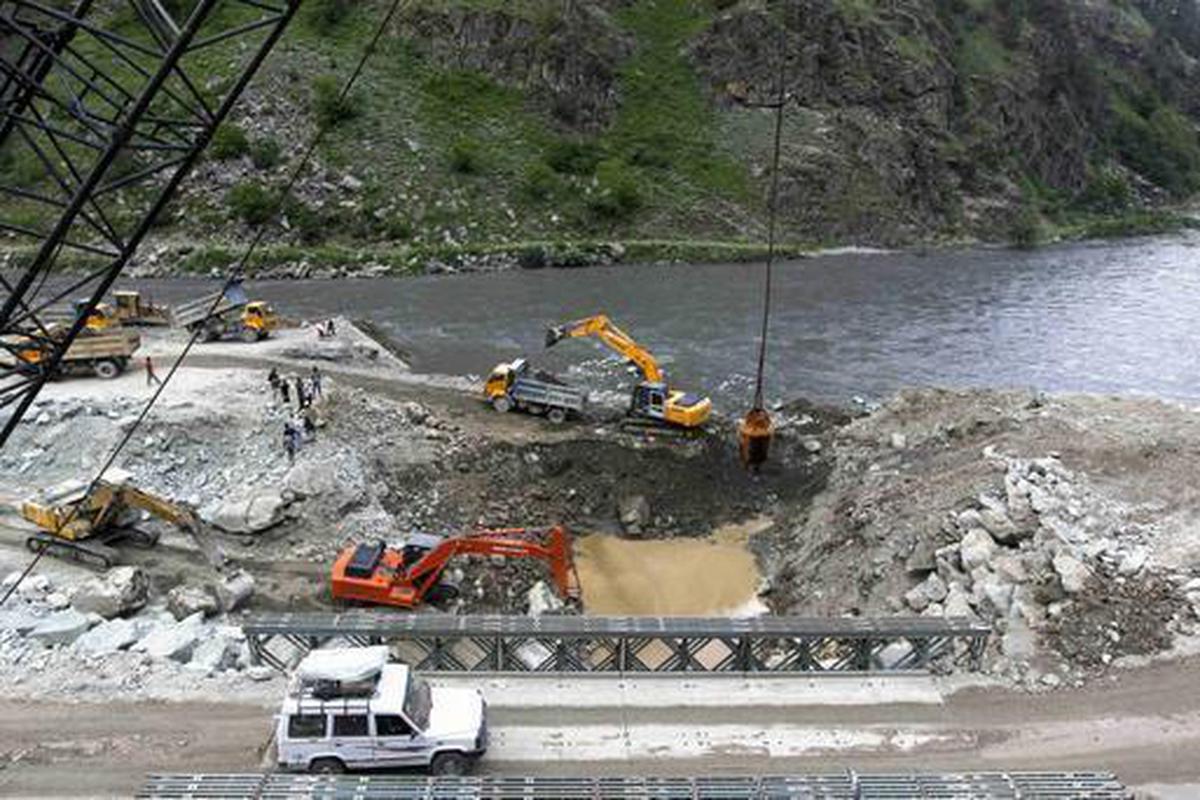Islamabad, 9 Feb 2023 (GNP): India has ramped up the pressure, sending a notice to Islamabad regarding alterations to the Indus Waters Treaty of 1960. This is due to India’s concerns that it will lose the case regarding the 330MW Kishenganga and 850 MW Ratle hydropower projects, which have disputed designs, in the Hague’s Court of Arbitration. If this occurs, India fears it will be unable to build future projects on Pakistan’s rivers that involve poundage and spillways, according to The News.
On Tuesday, Pakistani officials held an important meeting to address India’s request for changes to the Indus Waters Treaty of 1960, which the World Bank brokered. India initiated this action by invoking Article 12 of the Treaty.
Also Read: President Erdogan visits earthquake victims
According to a senior official from the Attorney General’s Office, the meeting was attended by the Secretary of Water Resources, the Pakistan Commissioner for Indus Waters, top officials from the Ministry of Foreign Affairs (MOFA), the Attorney General’s Office, Military Intelligence, and Inter-Services Intelligence. They discussed the Indian notice and Article 12 of the Indus Waters Treaty.
The official added that the concerned authorities also thoroughly discussed Pakistan’s response to the Indian notice, which would be sent to New Delhi soon.
The official emphasized that Pakistan did not violate the Indus Waters Treaty (IWT), making the Indian notice for modifications unwarranted. According to the official, under Article 12 of the Treaty, both parties have the right to request changes. Still, unless one party agrees to the proposed changes, the current Treaty remains in effect. As a lower riparian country, the official questioned how Pakistan could violate the IWT. The official noted that the upper riparian country, in this case, India, has breached the Treaty many times. The official cited the Kishenganga and Ratle projects as the latest examples of Indian violations.

According to the official, Pakistan exhausted all the avenues provided in the Indus Waters Treaty, including the Permanent Commission of Indus Waters at the secretary level, before turning to the World Bank to establish the Court of Arbitration. After Pakistan’s request to establish the CoA, India also submitted a request to the World Bank, seeking the appointment of neutral experts.
The official further noted that the World Bank announced a pause on the matter on December 12, 2016, halting the process to establish the Court of Arbitration as requested by Pakistan and the appointment of neutral experts requested by India. The World Bank has recommended that both countries explore alternative means to resolve their disagreements.
Also Read: Pakistan, Netherlands holds 10th rounds of BPC
Despite this, the official added that Pakistan has been urging the World Bank to lift the pause, as India has increased its construction efforts on the Kishenganga project. India continued the construction and completed the Kishenganga project with a design that violated the Treaty’s provisions. Furthermore, India has made the project operational.
According to the official, in 2017, India completed the Kishenganga project with a design different from the Treaty, one year after the World Bank imposed the pause. Instead, India resumed construction on the Ratle Hydropower project with a design that also violates the provisions of the Indus Waters Treaty. On April 3, 2018, Pakistan wrote to the World Bank, alleging that the suspension by the Bank had allowed India to complete the Kishenganga project.
The official added that six years after the declaration of the pause, the World Bank announced in 2022 that it would form a Court of Arbitration as requested by Pakistan and a neutral expert as requested by India.
The official noted that the recent two-day hearing of the case by the Court of Arbitration, which began on January 27-28, 2023, has irritated India, leading it to issue a notice to Pakistan seeking modifications. India believes that the neutral expert should first hear the case because the design issue, which violates the IWT, is a difference, not a dispute. On the other hand, Pakistan argues that the breach of the provisions of the IWT in the designs of both projects is a dispute, not a difference.
Also Read: Bazaar launches Industrial Bazaar in Pakistan
The official also added that now that the CoA has initiated the proceedings, it will determine if the neutral expert has the jurisdiction to hear the case first. India, anticipating a decision in favor of Pakistan by the CoA, which may result in the halting of construction of future projects on rivers in Pakistan with poundage and spillways, has issued the notice.
The official went on to say that India’s issuance of the notice is a clear attempt to undermine the legal proceedings that started with the initiation of the arbitration court. The decision to form the court of arbitration and the neutral expert lies with the World Bank President or the United Nations Secretary-General. Now that both forums have been established and the hearing has begun, the notice by India appears to be a calculated effort to sabotage the process. It is now up to the court of arbitration to determine if the neutral expert has the jurisdiction to hear the case, which revolves around the issue of whether the designs of the Kishenganga and Ratle hydropower projects are in breach of the Indus Waters Treaty.

